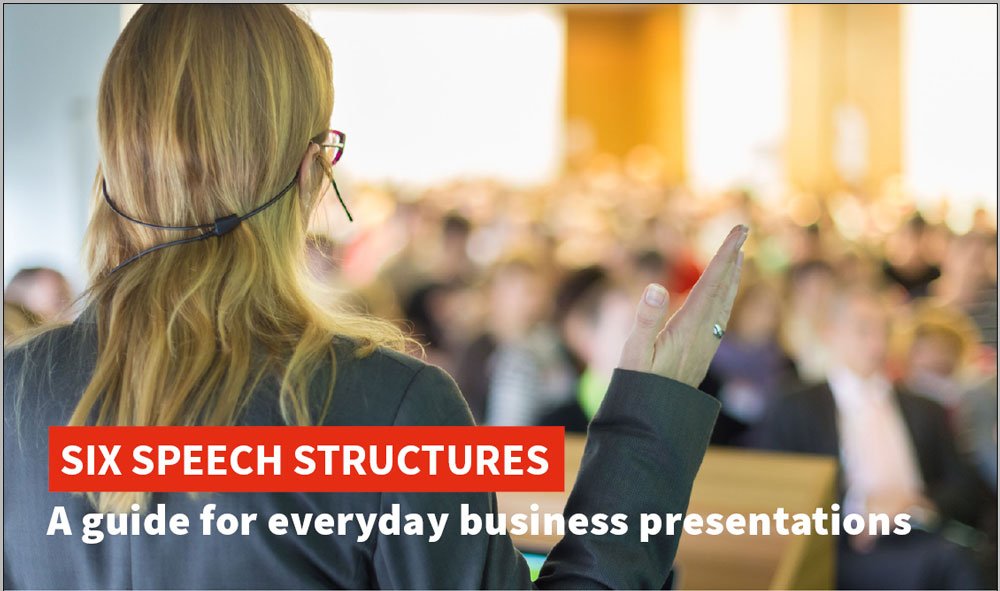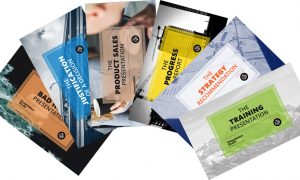Have You Heard the One About the Public Speaker Who Tried Comedy?


23.04.2019, 7:32pm
It’s show time soon!
The nerves are kicking in. The butterflies are fluttering around.
Why do I do this to myself? Why did I become a stand-up comedian? I ask myself this every time.
The simple answer: I love it and I’m hooked.
Tonight, the show is in a comedy club. Comedy is an interesting form of public speaking. It gives you the chance to stretch and grow, the chance to soar and fly. And it also gives you the chance to roll around in the muck quite publicly in abject failure. In the comedy world, there is no middle ground; it’s all or nothing. A comedy audience will either become a group of laughing, happy people or a row of stony silent faces praying for you to finish.
Comedy in German
To make matters more intense, this was also a comedy contest and in German too. I was born and raised in Ireland and moved to Germany when I was 30 and only then started to learn German. Unfortunately, this has not been one of the easier tasks in my life. Mark Twain said that life is too short to learn German, and I started late! And Twain never mentioned anything about doing comedy in German.
Doing comedy is a good stress test for any speaker. You’re trying to make a room full of strangers laugh on demand. That can happen if you are lucky, have a good audience and you are having a good night. If only every night were a good night.
Now you can dial up the stress testing levels a few more notches and do comedy in a foreign language. For me when I do comedy in German, the laughs are a bonus and I’m just grateful if they can understand me and nobody falls asleep. At least not in the front row like two elderly gentlemen did a few years ago.
Why Contests?
I am no great fan of comedy contests and even less of comedy contests in German when I’m participating. Having already competed in a few comedy contests, I have never been close to achieving any semblance of victory, fame or glory. Normally I come home with my ego smashed into small little pieces against the rocks of the comedy stage. Tonight, was probably going to be no different.
I asked myself again: Why do I do this to myself?
By stepping into this arena, I would be bringing all my fears and insecurities. And yet I would still have to remain cool, calm and perform. This continual stretching of my comfort zone has helped me no end in my “normal” public speaking.
A few years ago, if I spoke at a corporate event, it was like skiing down a difficult run; I could do the job, but survived on adrenaline alone. After many comedy gigs, speaking at a corporate event is now like skiing down a blue run with the sun shining in a cloudless sky. It is an absolute pleasure.
Focus on Growth
Comedy is a hard school of knocks.
Will an old joke work tonight? Will a new joke work? Will any joke work?
Many times, the answer to all of the above is no. One way that I use to survive the many setbacks of comedy is to focus on the personal growth instead of having a great gig.
By focussing on the growth, that means something can be learned from every gig. When a joke or a gig goes well, it is a signal to keep doing that material in that way. When a joke or gig doesn’t go well, it’s a chance to learn and adapt.
When a gig goes well, I can glow for a few days; when a gig doesn’t go well, I can wallow in misery for even longer. However, it is from these latter gigs that I can learn more, even if it doesn’t feel like it at the time.
I have learned how not to do something. Why didn’t that joke work tonight? Did I deliver it too fast, too slow, without the right timing, not in the right place in the set? Was the audience not warmed up properly?
But don’t despair, there are often positive surprises. A new joke lands, another joke finally works on the third attempt, you get a laugh when you are not expecting it and even occasionally an applause.
I video record and review all my gigs, so I that I can review them objectively a few days later. Sometimes what I see in the video corresponds to how I felt it went on stage, and sometimes it is quite different. So I get a reality check on my performance. When something goes well, I get positive reinforcement, and when a joke or story doesn’t land, I get critical insights into what to do differently.
Continually reviewing your performance is a common approach for many comics for developing material and fine tuning delivery. This can also be very effective for “normal” speakers. Watching yourself speaking on a video recording is an unpleasant experience for most people. It is for me! However, it is quickest way to see your own strengths and weakness, and show you where you need to improve.
Back to the Contest
Before the contest, the comics are hanging out and chatting before the show. This was unlike many speakers I’ve seen who retreat into their own space before speaking at an event. Many experienced comics I have met on my journey, always chat with each other before going on stage.
Why? Why weren’t they busy mentally rehearsing their text? Or dealing with their nerves?
I asked a few comics and they said they wanted to be as present as possible when they want on stage. They want the conversation on stage to be a continuation of the conversation that they were having off stage. In other words, they want to be as normal as possible and not move into an entirely different stage persona.
Being present is a huge advantage for any “normal” public speaker. It helps with the nerves, allows you to talk to the crowd in the most normal way possible, and helps you deal with any distractions that might occur.
Before the contest began, I tried as best as possible to chat with the other comics. The fact they were speaking in several different German dialects didn’t make this any easier. On the other hand, they had to try and understand my Irish-German dialect!
The Show Begins
The moderator did a great job warming up the crowd. The first comic went on stage and did very well. The second comic was also very good. And I paid close attention to each of them.
That’s another tip I picked up from more experienced comics: watch the other comics before you go on stage. Experienced comics want to be “in the room” as much as possible and not “in their heads”. They want to get a feel for the mood and pulse of the crowd.
By observing the show, they can note any event or joke to which they might refer later. This type of humour is ‘call back’ humour and audiences love it. This is because they know that the joke or comment was created in the moment on this night for them.
However, as this show was all in German, I was more worried about trying to understand the comics than trying to spot something funny to mention later. But hey, Rome wasn’t built in a day. And no, I am not going to start learning Italian!
Stage Time 1 – Intro
I was the third comic, the token foreigner in a cast of German comics. At least I would sound unique with my Irish-German accent.
In my introduction, I start with some jokes about being from Ireland and why I was in German. The goal is to address quickly the issue of what this Irish guy is doing in the heart of Bavaria speaking funny German.
As a speaker, this introduction can be done by your moderator, so is often not necessary.
However, if the moderator does not give you a detailed introduction, it can be useful to do a quick introduction so that your audience is more interested in listening to you.
Stage Time 2 – Connection/Questions
The introduction section has gone well enough. A few jokes have landed; however the reaction has not been as loud as normal. The thoughts are racing through my head. I need to deal with this. I need to build a better connection with the audience and get them engaged.
If there is no connection, the audience will lose interest and there will be no laughs. For a comic, this is worse than death.
How do you increase the connection? There are many tools that a comic can use and the good news is that “normal” speakers can use most of them too.
Tell short jokes, or tell long jokes. Speed up, slow down, ask a question or two, refer back to something that happened earlier, i.e. ‘call back’ humour. Use physical humour. Start a conversation with an audience member or call the room.
‘Calling the room’ is a term to used when a comic refers to something that is happening right now. For example, if the audience is tired, the room is hot or a glass breaks, you can win back the audience’s attention by acknowledging this. If you are lucky you might even be able to add something humorous.
Back to my set. I have to make a split-second decision about what to do next if I want to rescue my performance. I decide to ask some questions, some provocative questions. This will make the audience a little uncomfortable but is guaranteed to increase the attention level and usually gets some laughs. This worksd nicely. Phew, back on track! The audience is now primed for the next section.
Stage Time 3 – Connection/Slow Down
The reaction level is good, but I need to maintain it. What now? I need to try something other than just questions. I don’t want to pepper the audience with too many questions. Another technique for increasing connection is to slow down.
Slowing down is normally a good option for me. And it also is very effective for most speakers. People tell me that when I speak, my Irish accent can be quite strong, and when I speak in German my accent is doubly strong. Quite deliberately I start to slow down a little, add a few more pauses. This will help the audience to understand me better. It also gives them more time to react to the jokes and stories.
The reaction level of the audience increases. This is working well.
The audience is king, and if I must work harder to keep them happy, then so be it.
And once the audience is happy, then I’ll be happy too. This is similar to ‘normal’ presentations too. The focus should always be on the audience, what is relevant for them, what is their level of knowledge and most importantly ‘What’s in it for them?’
Stage Time 4 – Finish Strong
My set is almost done, and I have planned how I’m going to end. Finish strong is a rule in ‘normal’ speaking. It is also a great rule in comedy.
I’m going to finish with a reliable bit about Germans and traffic lights. This joke has worked well on many stages, so it should work tonight. Of course, there are no guarantees on a comedy stage so every joke is a leap of faith.
The bit starts well, build well and finishes will. I get a few good laughs and I finish strong. I’m happy and the crowd seems happy too.
But then as I come off stage the moderator tells me, I’ve another minute to go!
A few years ago, I would have gone back on stage to fill up the time. Now I know better, I have already finished strong and I am not going to jeopardise that. Better to leave the audience with a strong finish and wanting more, rather than overdoing it.
Rest of the evening
After my set there is a break, and the other comics are still talking to me. This is a good sign in the comedy world. When you come off stage after a bad set, you feel as loved as nuclear waste and nobody wants to talk to you and risk contamination. At least that’s how it feels to me.
In the comedy world, how you feel after a set gets amplified. If you do well, you can hear the stadium crowds calling your name. If it doesn’t go well, you can feel like retiring on the spot.
The golden rule is: When a set goes well, you are not as good as you think you are. When a set goes badly, you are not as bad as you think you are.
When giving ‘normal’ speeches this style of self-evaluation can also happen. My advice is to wait a few days and then watch the video recording. You will be able to evaluate yourself more objectively.
After the break, a few more comics are on stage. The final guy is fantastic and has the audience in stitches. In my book, he is the winner tonight.
And the winner is …
To wrap up the contest, there is an audience vote by secret ballot. The ballots are counted and second place is called out. The name of my favourite comic of the night is called out. Then first place is called out, and my name is called out. I’m shocked. At first I think that maybe I haven’t understood something as it was all in German. But then the other comics are congratulating me and I’m ushered onstage to receive my prize and applause.
I should be more delighted, but I’m actually more surprised about the result. Tonight, I was only here to learn something, to grow as a speaker, not to win anything. But I’ve also learned that this is showbiz. Keep smiling, take it all in stride and pretend it is normal. I can enjoy the moment now and review later.
Messages
I have learned a lot from stand-up comedy. The insights below will help any speaker improve, whether you want to be the next Trevor Noah or just deliver a good business presentation.
- Take little risks every time you speak. Speak in a new venue, to a new type of crowd, or even speak in a foreign language. This will help you build your confidence as a speaker.
- Do something new every time you speak. Try to speak faster or slower, more loudly or more softly. Use more body language or less, move around on stage or more. This will help you build your technical skill set as a speaker.
- Use anecdotes, short stories or longer stories. Keep refining your message and the point of what you are saying. This will sharpen your content as a speaker.
- Keep observing your audience and how engaged they are. Do you need to add or change something to get their attention and maximise your connection with them?
- Don’t speak for too long in any presentation. By going over on your allocated time you are not respecting your audience’s time. Even plan your presentations to finish a little early. You might be surprised how grateful your audience can be.
- There is a saying that ‘Feedback is the breakfast of champions’. This can be feedback from others or from a trusty video recording. In this way, you can refine your craft to take it to the next level.
If you liked this, you might also like
More Lessons from Stand-Up Comedy
7 Reasons You Should Always Arrive Early for Your Talk
The Three Dimensions of Feedback: Poison, Chocolate and Lemon























